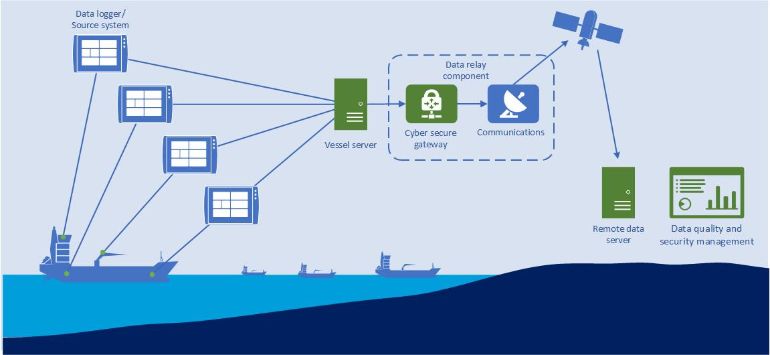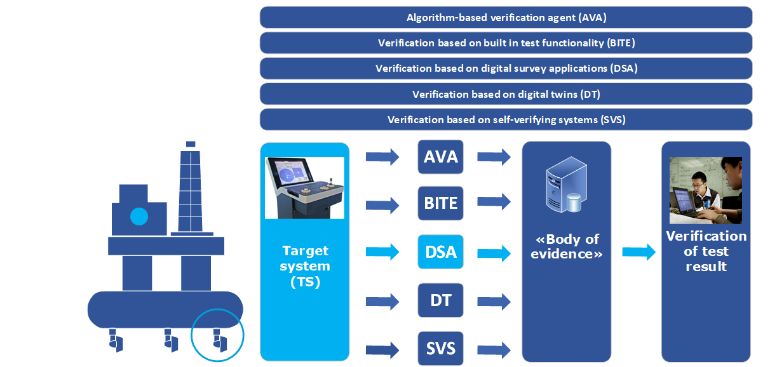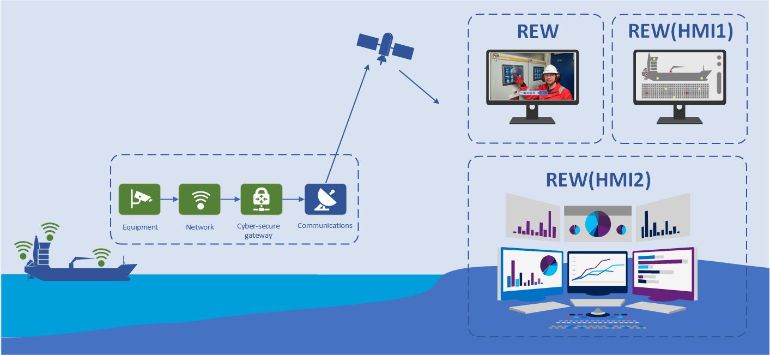Unlocking efficiencies of digital features
Optimizing operations through digitalization requires access to relevant and reliable data. This is collected from sources like sensors, control systems, and other types of data acquisition or interfaces where data is made available. The use of data extends from single parameters to larger data sets providing important information, e.g. on the performance or condition of machinery, equipment or systems, supervisory control and quality assurance. This information can be about the performance or condition of machinery, equipment or systems, supervisory control and quality assurance. The data can drive complex models and applications offering predictive analytics. One example is machine learning, in which software gets better at making predictions by learning from vast amounts of historical data. With an increasing amount of data being collected, the need for systems offering systematic data collection and storage as well as the use of data collection infrastructures become essential.
Rule: DNVGL-RU-SHIP Pt.6 Ch.11
Class notation ‘Cyber secure’
DNV’s additional class notation ‘Cyber secure’ addresses the cyber security of a vessel’s main functions and the owner’s operational needs. It provides recognized requirements for vessels and offshore units in operation, and for newbuilds, across different segments and security levels.
With this class notation, you can stay safe, compliant, win commercial contracts, and build the basis for a secure digital transformation of your vessel and fleet.
Class notation D-INF - Data collection infrastructure and vessel connectivity
DNV’s additional class notation ‘D-INF’ relates to the standardization of data and metadata to support cost-effective, scalable, reliable and secure data collection, storage, and exchange of data. The rules set out requirements for a data collection infrastructure established to facilitate vessel-to-shore data exchange with the following main elements:
- Data collection infrastructure, network, and connectivity.
- Data quality and security management.

Rule: DNVGL-RU-SHIP Pt.6 Ch.11; In sec 1
Supported by class guideline, data collection infrastructure DNVGL-CG-0564
Class notation DDV - Data-driven verification principles for retention of class certificates
‘DDV’ aims to reduce exposure to non-productive time and costs such as
- during trials;
- costs associated with surveyors from various organizations;
- redundant verification activities; and
- the cognitive burden imposed on vessel crews carrying out testing.
The objective is also to support the industry in the development and implementation of data-driven verification systems and methods, and to provide genuine, trustworthy verification evidence when replacing more traditional methods.

Rule: DNVGL-RU-SHIP Pt.6 Ch.11; in Sec 2
Supported by class guideline, data-driven verification DNVGL-CG-0557
Class notation REW - Remote witnessing preparedness
DNV’s additional class notation REW provides the requirements for systems and solutions used for remote witnessing. To enable remote interaction with technical experts, the notation outlines the onboard arrangements for live streaming. Two qualifiers indicate functionality for real-time witnessing, remote test functions, and sharing of system display information (HMI), with or without remote control of the system display information enabled.
